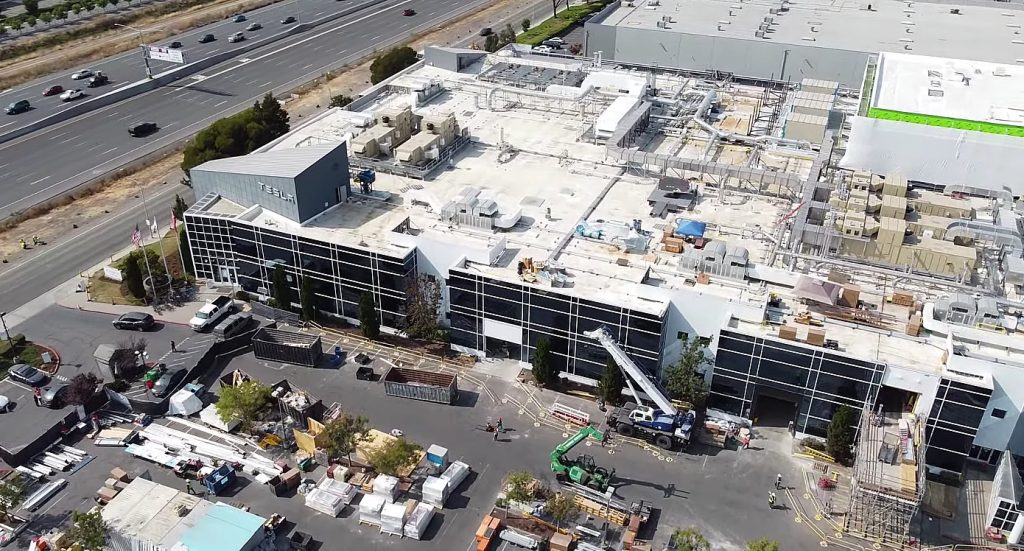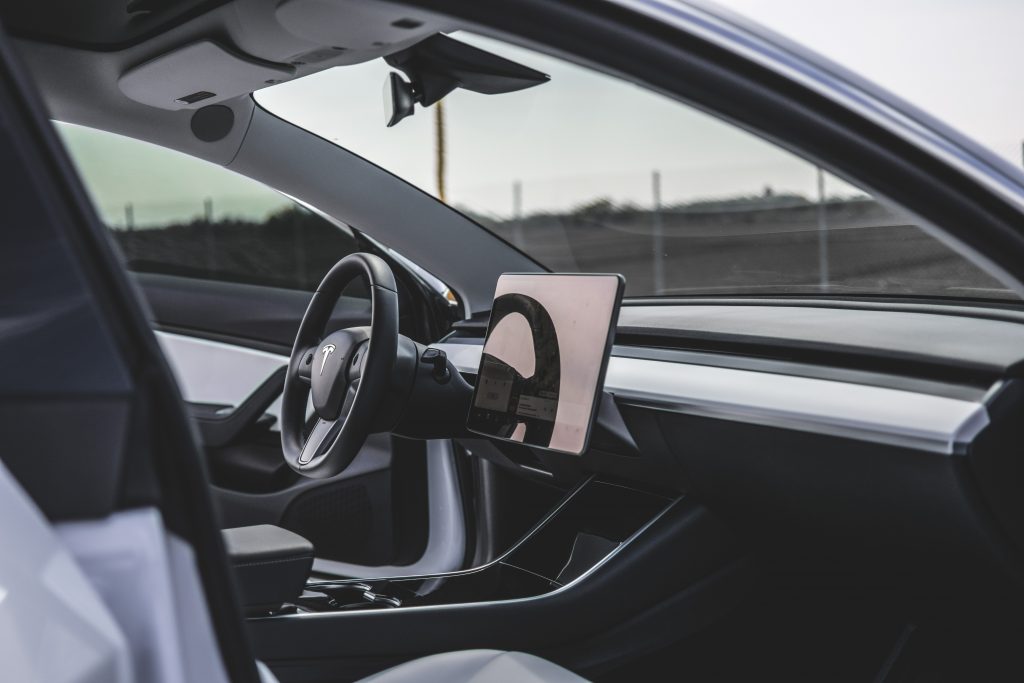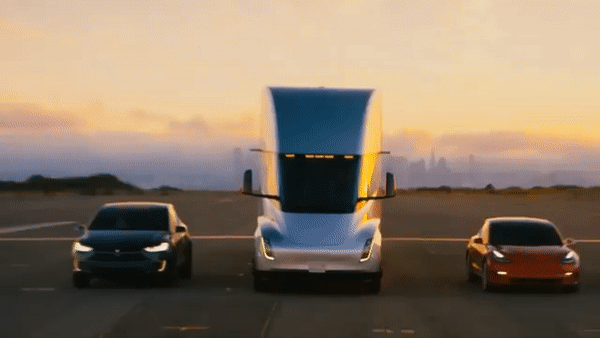The auto market has come to a point where it’s now difficult to deny that electric vehicles will be the dominant form of transportation in the near future. With companies like Tesla pushing the envelope for what electric cars can do and events such as Battery Day previewing technology that could bring EVs even closer to the mass market, it is starting to become evident that the age of electric cars is coming ahead of schedule.
The electric vehicle segment has shown remarkable strength, with EVs in Europe growing even as the rest of the automotive segment collapses under the pandemic. Part of this is due to the prices of electric cars coming closer to the cost of their internal combustion-powered counterparts. Vehicles such as the Tesla Model 3 have also proven that there is a legitimate demand for well-designed, reasonably-priced electric vehicles.
Electric cars have transitioned from niche vehicles into mass-market family cars in the span of about 12 years, and over this time, EVs and the cost of producing them have decreased significantly. This is most evident in the production costs of electric cars’ batteries. Current battery packs for EVs today are estimated to cost around $150-$200 per kWh. That’s about 80% lower than the cost of batteries since 2008.

With electric vehicles expanding into the mainstream market, the automobile industry is now approaching a tipping point when EVs could become as cheap as their fossil fuel-powered counterparts, even without government subsidies. And just as it is with any disruptive shift, the carmaker that reaches or exceeds price parity with the internal combustion engine first will be poised to dominate the segment.
Thanks to the efforts of companies like Tesla, electric vehicle technology is progressing faster than expected. As noted in a New York Times report, industry experts a few years ago were estimating that the turning point for EVs and their tech would come in 2025. But with automakers like Tesla pushing the envelope and events such as Battery Day potentially revealing technology that could push electric cars past the internal combustion engine, this 2025 estimate may end up being conservative.
Carnegie Mellon University associate professor Venkat Viswanathan, who closely follows the battery industry, described how the electric vehicle market is on an accelerated timeframe. “We are already on a very accelerated timeline. If you asked anyone in 2010 whether we would have price parity by 2025, they would have said that was impossible,” the professor said.

Perhaps what is truly remarkable about the rapid pace of the electric car market is the fact that EVs are still pretty much open to innovation. Batteries and electric powertrains still have a lot of room to grow, and companies like Tesla have proven that they will push the available technology as far as it could go to create the best EVs possible. This could be quite scary for traditional automakers that rely on fossil fuel-powered vehicles, since the internal combustion engine has already fully matured.
For now, the EV segment is turning into a race aimed at catching Tesla, which stands as the undisputed leader in electric cars today. The company may be a young carmaker, but its experience in electric car development is vast. Events such as Battery Day, which is expected to discuss the EV maker’s next-generation cells, have the potential to widen the gap between Tesla and its competitors even further. For traditional carmakers, it is now a matter of catching up to Tesla as fast as they could. But it won’t be easy.
In a statement to the Times, Jürgen Fleischer, a professor at the Karlsruhe Institute of Technology in southwestern Germany who is working on battery manufacturing research, noted that there will be a steep learning curve for veteran automakers that are dipping their feet into electric cars. “We have been mass-producing internal combustion vehicles since Henry Ford. We don’t have that for battery vehicles. It’s a very new technology. The question will be how fast can we can get through this learning curve?” he said.
News
Tesla cleared in Canada EV rebate investigation
Tesla has been cleared in an investigation into the company’s staggering number of EV rebate claims in Canada in January.

Canadian officials have cleared Tesla following an investigation into a large number of claims submitted to the country’s electric vehicle (EV) rebates earlier this year.
Transport Canada has ruled that there was no evidence of fraud after Tesla submitted 8,653 EV rebate claims for the country’s Incentives for Zero-Emission Vehicles (iZEV) program, as detailed in a report on Friday from The Globe and Mail. Despite the huge number of claims, Canadian authorities have found that the figure represented vehicles that had been delivered prior to the submission deadline for the program.
According to Transport Minister Chrystia Freeland, the claims “were determined to legitimately represent cars sold before January 12,” which was the final day for OEMs to submit these claims before the government suspended the program.
Upon initial reporting of the Tesla claims submitted in January, it was estimated that they were valued at around $43 million. In March, Freeland and Transport Canada opened the investigation into Tesla, noting that they would be freezing the rebate payments until the claims were found to be valid.
READ MORE ON ELECTRIC VEHICLES: EVs getting cleaner more quickly than expected in Europe: study
Huw Williams, Canadian Automobile Dealers Association Public Affairs Director, accepted the results of the investigation, while also questioning how Tesla knew to submit the claims that weekend, just before the program ran out.
“I think there’s a larger question as to how Tesla knew to run those through on that weekend,” Williams said. “It doesn’t appear to me that we have an investigation into any communication between Transport Canada and Tesla, between officials who may have shared information inappropriately.”
Tesla sales have been down in Canada for the first half of this year, amidst turmoil between the country and the Trump administration’s tariffs. Although Elon Musk has since stepped back from his role with the administration, a number of companies and officials in Canada were calling for a boycott of Tesla’s vehicles earlier this year, due in part to his association with Trump.
News
Tesla Semis to get 18 new Megachargers at this PepsiCo plant
PepsiCo is set to add more Tesla Semi Megachargers, this time at a facility in North Carolina.

Tesla partner PepsiCo is set to build new Semi charging stations at one of its manufacturing sites, as revealed in new permitting plans shared this week.
On Friday, Tesla charging station scout MarcoRP shared plans on X for 18 Semi Megacharging stalls at PepsiCo’s facility in Charlotte, North Carolina, coming as the latest update plans for the company’s increasingly electrified fleet. The stalls are set to be built side by side, along with three Tesla Megapack grid-scale battery systems.
The plans also note the faster charging speeds for the chargers, which can charge the Class 8 Semi at speeds of up to 1MW. Tesla says that the speed can charge the Semi back to roughly 70 percent in around 30 minutes.
You can see the site plans for the PepsiCo North Carolina Megacharger below.

Credit: PepsiCo (via MarcoRPi1 on X)

Credit: PepsiCo (via MarcoRPi1 on X)
READ MORE ON THE TESLA SEMI: Tesla to build Semi Megacharger station in Southern California
PepsiCo’s Tesla Semi fleet, other Megachargers, and initial tests and deliveries
PepsiCo was the first external customer to take delivery of Tesla’s Semis back in 2023, starting with just an initial order of 15. Since then, the company has continued to expand the fleet, recently taking delivery of an additional 50 units in California. The PepsiCo fleet was up to around 86 units as of last year, according to statements from Semi Senior Manager Dan Priestley.
Additionally, the company has similar Megachargers at its facilities in Modesto, Sacramento, and Fresno, California, and Tesla also submitted plans for approval to build 12 new Megacharging stalls in Los Angeles County.
Over the past couple of years, Tesla has also been delivering the electric Class 8 units to a number of other companies for pilot programs, and Priestley shared some results from PepsiCo’s initial Semi tests last year. Notably, the executive spoke with a handful of PepsiCo workers who said they really liked the Semi and wouldn’t plan on going back to diesel trucks.
The company is also nearing completion of a higher-volume Semi plant at its Gigafactory in Nevada, which is expected to eventually have an annual production capacity of 50,000 Semi units.
Tesla executive teases plan to further electrify supply chain
News
Tesla sales soar in Norway with new Model Y leading the charge
Tesla recorded a 54% year-over-year jump in new vehicle registrations in June.

Tesla is seeing strong momentum in Norway, with sales of the new Model Y helping the company maintain dominance in one of the world’s most electric vehicle-friendly markets.
Model Y upgrades and consumer preferences
According to the Norwegian Road Federation (OFV), Tesla recorded a 54% year-over-year jump in new vehicle registrations in June. The Model Y led the charge, posting a 115% increase compared to the same period last year. Tesla Norway’s growth was even more notable in May, with sales surging a whopping 213%, as noted in a CNBC report.
Christina Bu, secretary general of the Norwegian EV Association (NEVA), stated that Tesla’s strong market performance was partly due to the updated Model Y, which is really just a good car, period.
“I think it just has to do with the fact that they deliver a car which has quite a lot of value for money and is what Norwegians need. What Norwegians need, a large luggage space, all wheel drive, and a tow hitch, high ground clearance as well. In addition, quite good digital solutions which people have gotten used to, and also a charging network,” she said.
Tesla in Europe
Tesla’s success in Norway is supported by long-standing government incentives for EV adoption, including exemptions from VAT, road toll discounts, and access to bus lanes. Public and home charging infrastructure is also widely available, making the EV ownership experience in the country very convenient.
Tesla’s performance in Europe is still a mixed bag, with markets like Germany and France still seeing declines in recent months. In areas such as Norway, Spain, and Portugal, however, Tesla’s new car registrations are rising. Spain’s sales rose 61% and Portugal’s sales rose 7% last month. This suggests that regional demand may be stabilizing or rebounding in pockets of Europe.
-

 Elon Musk2 weeks ago
Elon Musk2 weeks agoTesla investors will be shocked by Jim Cramer’s latest assessment
-

 Elon Musk2 days ago
Elon Musk2 days agoxAI launches Grok 4 with new $300/month SuperGrok Heavy subscription
-

 Elon Musk4 days ago
Elon Musk4 days agoElon Musk confirms Grok 4 launch on July 9 with livestream event
-

 News1 week ago
News1 week agoTesla Model 3 ranks as the safest new car in Europe for 2025, per Euro NCAP tests
-

 Elon Musk2 weeks ago
Elon Musk2 weeks agoA Tesla just delivered itself to a customer autonomously, Elon Musk confirms
-

 Elon Musk1 week ago
Elon Musk1 week agoxAI’s Memphis data center receives air permit despite community criticism
-

 News2 weeks ago
News2 weeks agoXiaomi CEO congratulates Tesla on first FSD delivery: “We have to continue learning!”
-

 News2 weeks ago
News2 weeks agoTesla sees explosive sales growth in UK, Spain, and Netherlands in June

















